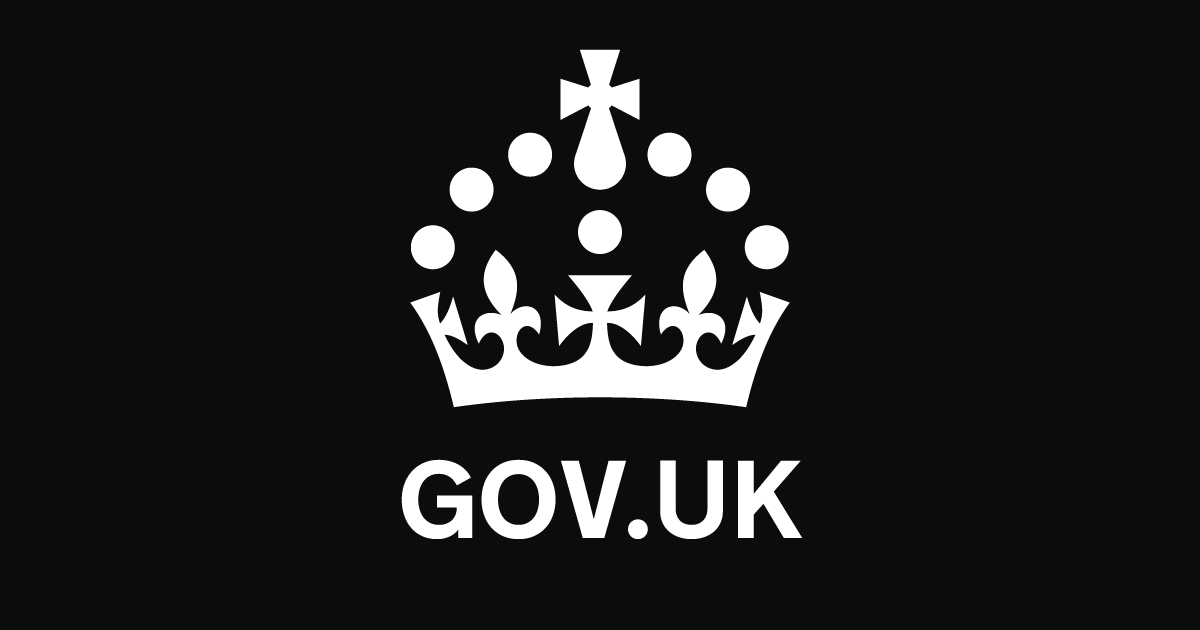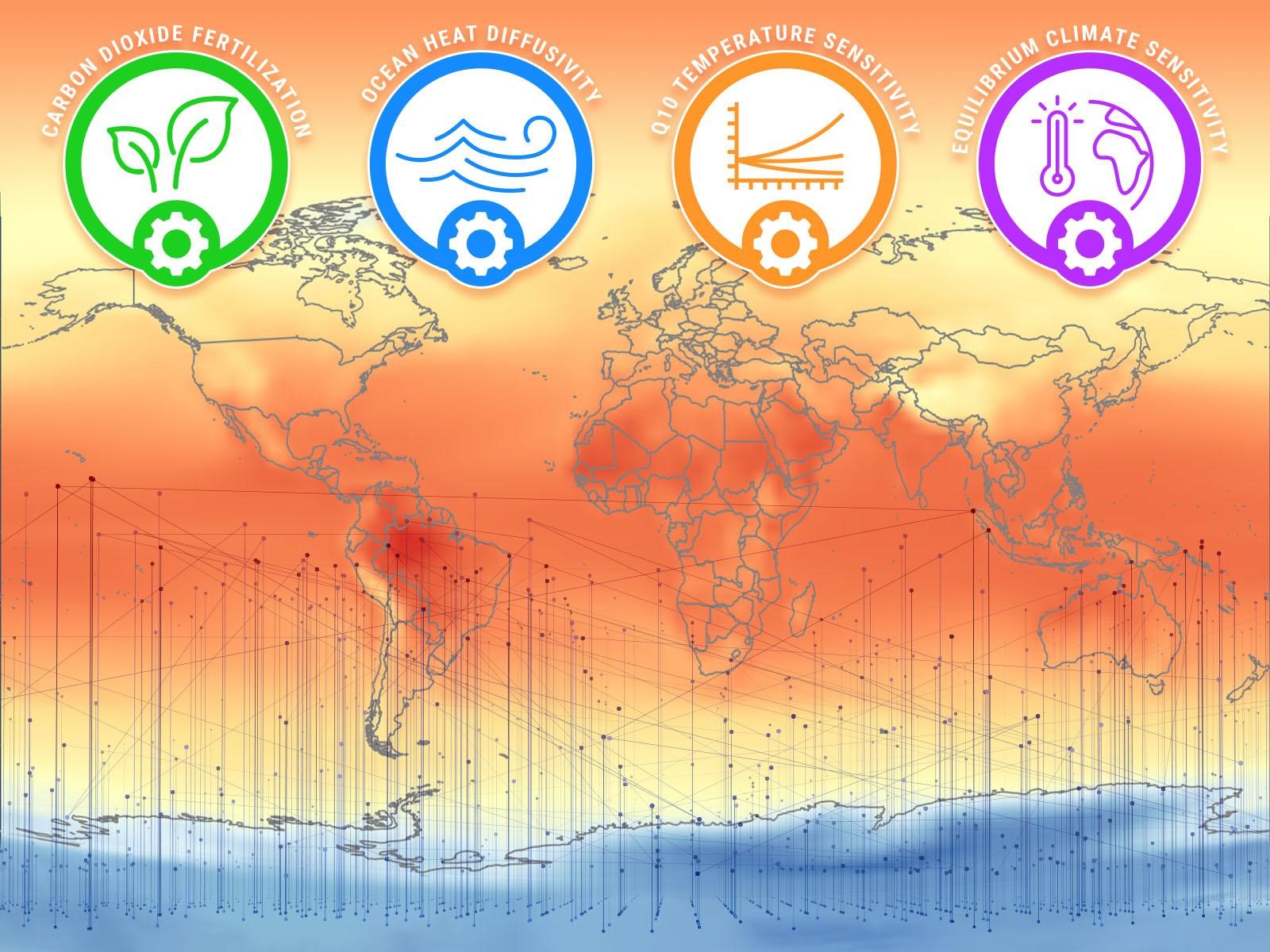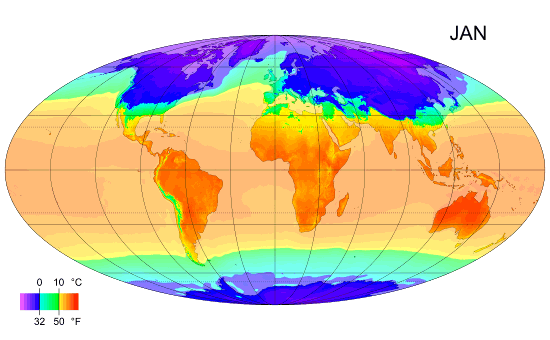Climate scientist
Alternative titles for this job include Climatologist
Climate scientists study changes in the Earth's climate over time and how they might affect the planet in the future.

nationalcareers.service.gov.uk
Climate science is the effort by humans to understand the natural forces that control the climate. A planet’s climate is driven by the energy of the Sun falling on the planet’s surface, which varies widely depending on latitude and the season. Climate is ultimately determined by the complex interplay between that energy and the Earth’s atmosphere, oceans, and land masses.
Climate science is the effort by humans to understand the natural forces that control the climate.

www.acs.org
What is climate science?
Climate science, or climatology, is the study of Earth’s climate. Climate scientists want to better understand our planet’s atmosphere and how it affects various ecosystems. Many equate climate with the weather. And indeed, the word climate is usually defined as the average weather conditions in a particular area over a long-term period, such as years or decades. But climate science touches far more than weather trends. It explores how climate conditions affect a variety of habitats such as oceans, rivers, forests, deserts, and grasslands, as well as the creatures living within those habitats.
Climate science, or climatology, is the study of Earth’s climate. Climate scientists want to better understand our planet’s atmosphere and how it affects various ecosystems. Many equate climate with the weather. And indeed, the word climate is usually defined as the average weather conditions in...

www.pnnl.gov
Starting at school, there is simply no substitute for Maths and Physics.

climateextremes.org.au
What is a climatologist?-Climatologists are often confused with meteorologists, who study current weather conditions and make short-term forecasts for temperature, winds, and amount and type of precipitation. -Climatologists study long-term trends in the climate, which can affect: energy usage, food production survival of endangered species even human health and life expectancy. -Climatology can actually be a lot more exciting than it sounds (read on!)
A
- Waleed Abdalati, American, director of Cooperative Institute for Research in Environmental Studies, former chief scientist of NASA
- Nerilie Abram (1977–), Australian paleoclimatologist, at Australian National University
- Ernest Afiesimama, Nigerian weatherman, former senior associate of the International Centre for Theoretical Physics
- Myles Allen, head of the Climate Dynamics group at University of Oxford's Atmospheric, Oceanic and Planetary Physics Department. Lead author, IPCC Third Assessment Report. Review editor, Fourth Assessment Report.
- Richard Alley (1957–), Penn State College of Earth and Mineral Science, American, Earth's cryosphere and global climate change.
- Kevin Anderson, Director of the Tyndall Centre for Climate Change Research and is an adviser to the British Government on climate change.
- James Annan, British climatologist with Blue Skies Research, UK
- Julie Arblaster, Australian climatologist at The Centre for Australian Weather and Climate Research in CSIRO
- David Archer, American professor of oceanography at University of Chicago
- Svante Arrhenius (1859–1927), Swedish, greenhouse effect
B
- Sallie Baliunas, American, astrophysicist, solar variation
- Elizabeth A. Barnes, American climate scientist working on earth science statistics
- Eric J. Barron (1944–), American geophysicist, President of Pennsylvania State University
- Roger G. Barry, (1935–2018), British-American, polar climatologist, first director of the National Snow and Ice Data Center
- Robin Bell, American, polar geophysicist, President-elect of the American Geophysical Union
- Martin Beniston, Swiss climate scientist.
- Lennart Bengtsson (1935–), Swedish meteorologist and climate scientist
- André Berger, (1942–), Belgian, modeling climatic changes at the geological and at the century time scales
- Richard A. Betts, Head of the Climate Impacts strategic area at the Met Office Hadley Centre
- John W. Birks, American atmospheric chemist and co-developer of the nuclear winter theory
- Jacob Bjerknes (1897–1975), Norwegian-American meteorologist
- Vilhelm Bjerknes (1862–1951), Norwegian, forecasting, numerical models
- Bert Bolin (1925–2007), Swedish meteorologist, first chair of the IPCC
- Gerard C. Bond (1940–2005), American geologist and paleoclimate researcher
- Jason Box, American professor of glaciology at Ohio State University
- Raymond S. Bradley, American, historical temperatures, paleoclimatology, and climate variability.
- Keith Briffa (1952–2017), United Kingdom, dendrochronology, temperature history.
- Wallace Smith Broecker (1931–2019), American, Pleistocene geochronology, radiocarbon dating, and chemical oceanography
- Harold E. Brooks (1959–), American meteorologist, severe convective storm and tornado climatology as well as conducive atmospheric environments
- Keith Browning, British meteorologist; mesoscale meteorology, sparkles
C
- Robert Cahalan, American, climate physics, energy balance, radiative transfer, remote sensing, solar radiation
- Ken Caldeira, American, climate engineering, ocean acidification, atmospheric chemistry
- Guy Stewart Callendar (February 1898-October 1964), English steam engineer and inventor who proposed what eventually became known as the Callendar effect, the theory that linked rising carbon dioxide concentrations in the atmosphere to global temperature
- Mark Cane, American, modeling and prediction of the El Niño-Southern Oscillation
- Anny Cazenave, French oceanographer specializing in satellite altimetry
- Robert D. Cess, American atmospheric scientist, emeritus professor at Stony Brook University
- Jule G. Charney (1917–1981), American meteorologist, pioneer in numerical weather modeling
- John Christy, director of the Earth System Science Center at The University of Alabama in Huntsville. Best known (with Roy Spencer) for developing the first version of the satellite temperature record.
- John A. Church (1951–), Australian oceanographer, chair of the World Climate Research Programme
- Ralph J. Cicerone (1943–2016), American atmospheric chemist, President of U.S. National Academy of Sciences
- Danielle Claar, American marine scientist studying effect of climate on coral symbionts and parasites
- Allison Crimmins, American, head of the National Climate Assessment
- Harmon Craig (1926–2003), pioneering American geochemist
- Paul J. Crutzen (1933–2021), Dutch, stratospheric and tropospheric chemistry, and their role in the biogeochemical cycles and climate
- Heidi Cullen, American meteorologist, chief scientist for Climate Central
- Balfour Currie OC (1902–1981), Canadian climatologist at University of Saskatchewan
- Judith Curry American climatologist and former chair of the School of Earth and Atmospheric Sciences at the Georgia Institute of Technology
ETC, ETC, ETC

en.wikipedia.org








:max_bytes(150000):strip_icc()/GettyImages-663898216-d4f260d2616e43f0899f5cad28e775f5.jpg)